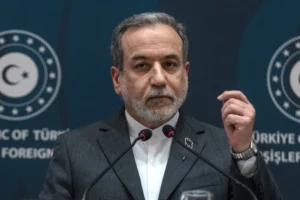KABUL (SW) – The Organization of Islamic Cooperation (OIC) and the Arab League have called for the end of the conflicts in Gaza and Lebanon during an emergency meeting in Riyadh, the capital of Saudi Arabia.
In the final statement of this meeting, Israel’s presence in Gaza was described as occupation, and it was emphasized that the ongoing situation in Gaza should come to an end.
Since the conflict began between Hamas and Israel in Gaza, over 146,000 Palestinian citizens have been killed or injured, and in the latest Israeli airstrikes in Gaza on the previous night and day, at least 37 Palestinians have been killed, and dozens more have been injured.
Experts, criticizing the current stance of the Islamic leaders regarding the Middle East crisis, argue that due to the lack of a decisive will among these leaders, their statements on Monday, cannot lead to a change in the situation in the Middle East.
Wali Forouzan, an international relations expert, says: “The leaders of Islamic countries who express their views are doing so because of the public opinions in their own countries and the media; but when we look at their policies, they are in line with the West and the United States.”
Ajmal Zarmati, another international relations expert, also states: “It is regrettable that after almost a year or more and thousands of deaths and injuries, the leaders of Islamic countries are now gathering to condemn the continuation of the war.”
According to these experts, the lack of serious will to end the Middle Eastern conflicts among the leaders of Islamic countries, the conflicting interests of these countries, and some other political and non-political factors have led to the inability of these countries to play a significant role in ending the war in Gaza and preventing further Israeli actions in the region.
The experts say that ending the conflicts in Gaza and other parts of the Middle East requires diplomatic and economic pressure that countries should apply against Israel if they truly want the war to end.
Zarmati adds: “As long as the United States does not intervene and put pressure on Israel, its proxy, the war will not stop, and the Islamic leaders are not in a position to manage the situation.”
Mohammad Halim Siyam, a university professor, also says: “The pressure tools available to Islamic countries to end the war include various factors, such as economic levers like restrictions on oil exports, severing diplomatic relations, or supporting diplomatic initiatives to end the war in international forums; however, the use of these tools has been limited so far, and countries have not utilized them due to their economic dependence and vested interests.”
Despite scattered efforts for a ceasefire in Gaza and global opposition to these conflicts, the war between Israel and Hamas in Gaza has not only not stopped, but its scope has also expanded to Lebanon.






